
Can Eating a Succulent Plant Harm My Dog?

As a dog owner, it is important to be aware of the potential hazards that certain plants can pose to your furry friend. While many plants are harmless to dogs, there are some that can be toxic and cause health issues if ingested. One such plant that often raises concerns is the succulent plant, known for its fleshy leaves and vibrant colors.
We will explore the potential risks associated with dogs ingesting succulent plants. We will discuss the common types of succulents that can be harmful to dogs, the symptoms of succulent poisoning, and the necessary steps to take if your dog has consumed a succulent. Additionally, we will provide some tips on how to keep your dog safe and prevent them from accessing potentially harmful plants in your home or garden. By understanding the risks and taking appropriate precautions, you can ensure the well-being of your canine companion.
- Yes, some succulent plants can be toxic to dogs if ingested
- It's important to research which succulent plants are safe for dogs before bringing them into your home
- Keep your succulent plants out of reach from your dog to prevent them from eating them
- If you suspect your dog has ingested a toxic succulent plant, contact your veterinarian immediately
- Some common toxic succulent plants for dogs include aloe vera, jade plant, and snake plant
- Symptoms of succulent plant poisoning in dogs can include vomiting, diarrhea, and lethargy
- Prompt medical treatment is crucial for a dog that has ingested a toxic succulent plant
- Frequently Asked Questions
Yes, some succulent plants can be toxic to dogs if ingested
It's no secret that succulent plants have become incredibly popular in recent years. These low-maintenance, water-retaining plants have found their way into homes and gardens all over the world. But what happens if your furry friend decides to take a bite out of one of these trendy plants? Can eating a succulent plant harm your dog?
The answer is yes. While many succulent plants are harmless to dogs, there are a few varieties that can be toxic if ingested. It's important for pet owners to be aware of the potential dangers and take precautions to keep their dogs safe.
Common Toxic Succulent Plants
Here are some of the most common succulent plants that can be harmful to dogs:
- Aloe Vera: Aloe vera is a popular succulent known for its healing properties. However, if your dog ingests this plant, it can cause vomiting, diarrhea, and even tremors.
- Jade Plant: Also known as Crassula ovata, the jade plant is a common household succulent. While it's safe for humans, it can be toxic to dogs, causing vomiting, depression, and a slow heart rate.
- Kalanchoe: This colorful succulent contains toxins that can cause drooling, vomiting, and diarrhea in dogs. In severe cases, it can even lead to abnormal heart rhythms and organ failure.
These are just a few examples, and there are other succulent plants that can be harmful to dogs. It's always best to do your research or consult with a veterinarian before bringing any new plants into your home.
 Will Neem Oil Have Adverse Effects on My Succulents?
Will Neem Oil Have Adverse Effects on My Succulents?Preventing Accidental Ingestion
While it's important to be cautious about the types of succulent plants you have around your dog, it's equally important to take steps to prevent accidental ingestion:
- Elevate plants: Keep succulent plants out of your dog's reach by placing them on high shelves or hanging them from the ceiling.
- Supervise outdoor time: If you have succulent plants in your garden, make sure to supervise your dog's outdoor time to prevent them from nibbling on any potentially toxic plants.
- Train your dog: Teach your dog basic commands like "leave it" or "drop it" to prevent them from eating any plants they come across.
By being aware of the potential dangers and taking these precautions, you can enjoy the beauty of succulent plants while keeping your furry friend safe and healthy.
It's important to research which succulent plants are safe for dogs before bringing them into your home
Many people are drawn to succulent plants for their unique shapes, vibrant colors, and low maintenance care. These plants have become increasingly popular in recent years, adorning homes and offices alike. However, it is essential to consider the safety of our furry friends when introducing any new plant into our living spaces.
Can eating a succulent plant harm your dog?
The answer to this question is not a straightforward "yes" or "no." While some succulent plants are harmless to dogs, others can be toxic and potentially harmful if ingested. It is crucial to research and identify which succulent plants are safe for your furry companion before bringing them into your home.
Safe succulent plants for dogs
If you are a succulent enthusiast and a dog owner, don't worry! There are plenty of succulent plants that are considered safe for dogs. These plants can add beauty to your space without posing a risk to your four-legged friend. Here are a few examples:
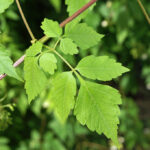 Common White Diseases: Identifying and Treating Succulent Afflictions
Common White Diseases: Identifying and Treating Succulent Afflictions- Spider Plant (Chlorophytum comosum): Spider plants are non-toxic to dogs and can be an excellent addition to your succulent collection. Their long, arching leaves and ability to tolerate low light make them a popular choice for both novice and experienced plant owners.
- Hens and Chicks (Sempervivum spp.): Hens and Chicks are a type of succulent known for their rosette shape and ability to produce new "chicks" around the main plant. These plants are generally safe for dogs and can add a unique touch to your indoor or outdoor garden.
- Burro's Tail (Sedum morganianum): Burro's Tail is a trailing succulent with long, cascading stems adorned with plump, teardrop-shaped leaves. This plant is considered non-toxic to dogs, although it's always a good idea to keep an eye on your pup around any plant.
Toxic succulent plants for dogs
While there are many safe succulent options, it's crucial to be aware of the succulent plants that are toxic to dogs. These plants should be avoided or placed out of reach from your furry friend. Here are a few examples of succulents that can be harmful to dogs:
- Jade Plant (Crassula ovata): Jade plants are popular succulents known for their thick, fleshy leaves and tree-like appearance. However, these plants can be toxic to dogs if ingested in large quantities. It's best to keep Jade plants in a secure location away from your pet.
- Aloe Vera (Aloe barbadensis): Aloe vera is a well-known succulent with numerous health benefits for humans. However, the gel found inside the leaves can cause gastrointestinal upset in dogs if consumed in large amounts. Keep Aloe vera plants away from your furry friends to prevent any potential harm.
- Pencil Cactus (Euphorbia tirucalli): Pencil cacti, also known as Fire Sticks, are unique succulents with thin, pencil-like stems. While visually striking, these plants contain a toxic sap that can cause severe irritation if it comes into contact with your dog's skin or if ingested. It's best to avoid having this plant in your home if you have pets.
It's always a good idea to consult with your veterinarian or a plant expert if you have any doubts about the safety of a specific succulent plant for your dog. They can provide you with detailed information and guidance to ensure a pet-friendly environment in your home.
Remember, responsible pet ownership includes being mindful of the plants and substances that may pose a risk to your furry friends. By doing your research and making informed choices, you can create a safe and beautiful space for both you and your dog to enjoy.
Keep your succulent plants out of reach from your dog to prevent them from eating them
There's no denying the allure of succulent plants. Their vibrant colors, unique shapes, and low maintenance make them a popular choice for indoor and outdoor gardens. However, if you're a proud dog owner, you may be wondering whether these beautiful plants pose any harm to your furry friend. The answer is yes, certain succulent plants can indeed be toxic to dogs if ingested.
1. Aloe Vera: Aloe vera is a common succulent plant known for its healing properties. While it can work wonders for humans, it can be toxic to dogs. The gel inside the aloe vera plant contains a substance called saponin, which can cause vomiting, diarrhea, and tremors in dogs if ingested in large quantities.
2. Jade Plant: Jade plants are popular houseplants due to their attractive, glossy leaves. However, these plants contain a toxic compound called bufadienolides, which can cause vomiting, depression, and even abnormal heart rhythm in dogs if consumed.
3. Snake Plant: Snake plants, also known as mother-in-law's tongue, are known for their air purifying properties. However, they can be harmful to dogs if ingested. The plant contains saponins, which can cause stomach upset, vomiting, and diarrhea in dogs.
 Understanding the Reason for White Fuzz on Succulent Leaves
Understanding the Reason for White Fuzz on Succulent Leaves4. Echeveria: Echeveria is a popular succulent plant with rosette-shaped leaves. While it is generally considered non-toxic to humans, it can cause gastrointestinal upset, vomiting, and diarrhea in dogs if consumed in large amounts.
5. Christmas Cactus: The Christmas cactus is a beautiful succulent often seen during the holiday season. While it is generally not highly toxic, it can still cause mild gastrointestinal upset in dogs if ingested.
It's important to note that these are just a few examples of succulent plants that can be harmful to dogs. There are many other varieties of succulents, and some may have different levels of toxicity. If you suspect that your dog has ingested any part of a succulent plant, it's best to seek veterinary advice immediately.
To ensure the safety of your dog, it's recommended to keep your succulent plants out of reach from your furry friend. Place them in elevated areas or use barriers to prevent access. Additionally, if you notice any signs of distress or unusual behavior in your dog after being near succulent plants, consult a veterinarian for further guidance.
If you suspect your dog has ingested a toxic succulent plant, contact your veterinarian immediately
It's no secret that dogs have a knack for getting into things they shouldn't. From chewing on household items to sampling plants in the garden, their curiosity knows no bounds. If you suspect that your furry friend has ingested a toxic succulent plant, it's crucial to take immediate action and seek veterinary assistance.
Succulent plants, with their vibrant colors and unique shapes, have become increasingly popular as houseplants. However, not all succulents are safe for our canine companions. Some species of succulents can be toxic to dogs and may cause a range of health issues if ingested.
Common toxic succulent plants for dogs
 Identifying & Treating Common White Bugs in Succulent Plants
Identifying & Treating Common White Bugs in Succulent Plants- Aloe Vera
- Jade Plant
- Snake Plant
- Devil's Backbone
- Pencil Cactus
While this list does not encompass all toxic succulent plants, these are some of the more commonly found ones that can pose a risk to your dog's health.
Symptoms of succulent plant poisoning in dogs
When a dog ingests a toxic succulent plant, they may exhibit various symptoms depending on the specific plant and the amount ingested. Some common signs of succulent plant poisoning in dogs include:
- Vomiting
- Diarrhea
- Lethargy
- Loss of appetite
- Excessive drooling
- Tremors or seizures
If you notice any of these symptoms or suspect that your dog has consumed a toxic succulent plant, it is crucial to contact your veterinarian immediately. Time plays a critical role in ensuring your dog's well-being and preventing any potential complications.
Preventing succulent plant poisoning
To keep your dog safe, it's important to take preventive measures:
- Research and identify which succulent plants are safe to have around dogs.
- Place toxic succulents out of your dog's reach or consider not having them in your home.
- Supervise your dog when they are exploring outdoor areas where succulents may grow.
- Train your dog to avoid chewing on plants and provide appropriate chewing alternatives.
- Keep the contact information for your veterinarian readily available in case of emergencies.
By being proactive and knowledgeable about the potential risks, you can ensure a safe environment for your dog and prevent succulent plant poisoning.
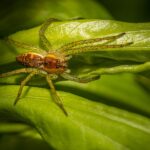 Are Tiny Bugs Harmful to Succulent Health?
Are Tiny Bugs Harmful to Succulent Health?Remember, when it comes to your dog's health, it's always better to be cautious and seek professional advice if you suspect any issues. Your veterinarian is the best person to guide you and provide the necessary treatment for your furry friend.
Some common toxic succulent plants for dogs include aloe vera, jade plant, and snake plant
When it comes to keeping our furry friends safe, we often focus on the obvious dangers like chocolate, grapes, or household chemicals. However, it's essential to be aware that not all plants are safe for our dogs to ingest. While succulent plants may seem harmless and even trendy as indoor decorations, some varieties can be toxic to our canine companions.
Aloe Vera: This popular succulent is known for its soothing properties for human use, but it can pose a threat to dogs if ingested. Aloe vera contains anthraquinones, which can cause gastrointestinal upset, including vomiting and diarrhea, if consumed in large quantities.
Jade Plant: The jade plant, also known as Crassula ovata or money plant, is a common succulent found in many households. While it may bring good luck and prosperity, it can bring harm to your dog. Jade plants contain a substance called bufadienolides, which can cause vomiting, depression, and even slower heart rate if ingested by your furry friend.
Snake Plant: With its tall, sword-shaped leaves, the snake plant is a popular choice for indoor decor due to its low maintenance requirements. However, these plants contain saponins, which can irritate the gastrointestinal tract when consumed by dogs. Symptoms of snake plant ingestion may include drooling, vomiting, and diarrhea.
If you suspect that your dog has ingested any of these toxic succulent plants, it's crucial to contact your veterinarian immediately. They will be able to provide guidance on the best course of action and determine if any treatment is necessary. Remember, prevention is always better than cure, so it's important to keep these plants out of reach of your pets.
 Powdery Mildew on Succulents: Symptoms, Treatment, and Prevention
Powdery Mildew on Succulents: Symptoms, Treatment, and PreventionPreventing Accidental Ingestion:
- Place toxic succulent plants in areas that your dog cannot access, such as high shelves or hanging baskets.
- Consider using pet-friendly alternatives like non-toxic succulent plants or artificial plants to decorate your home.
- Train your dog to avoid chewing on plants and provide them with appropriate chew toys to redirect their attention.
- Supervise your dog when they are outdoors to prevent them from nibbling on any potentially harmful plants.
By being aware of the potential dangers and taking necessary precautions, you can ensure that your dog stays safe and healthy, even in the presence of succulent plants.
Symptoms of succulent plant poisoning in dogs can include vomiting, diarrhea, and lethargy
As responsible pet owners, it is important to be aware of the potential dangers that certain plants can pose to our furry friends. While succulent plants are known for their unique and eye-catching appearance, some varieties can be toxic to dogs if ingested.
If you suspect that your dog has eaten a succulent plant, it is crucial to watch out for common symptoms of plant poisoning. These symptoms may include:
- Vomiting: Dogs may experience episodes of vomiting as their body tries to expel the toxic substance.
- Diarrhea: Succulent plant toxicity can also lead to diarrhea, which can be accompanied by loose stools and increased frequency of bowel movements.
- Lethargy: Dogs may appear unusually tired or lacking in energy due to the negative effects of the toxic plant on their system.
If you notice any of these symptoms or suspect that your dog has ingested a succulent plant, it is crucial to seek veterinary assistance immediately. Time is of the essence when dealing with potential plant poisoning, as prompt treatment can greatly increase the chances of a positive outcome.
While not all succulent plants are toxic to dogs, it is important to familiarize yourself with the specific varieties that can pose a risk. Some common succulents that can be harmful to dogs include:
 Choosing Bug Spray for Succulents: Safety and Effectiveness
Choosing Bug Spray for Succulents: Safety and Effectiveness- Jade Plant (Crassula ovata): Also known as the money plant, the jade plant contains a toxic compound called bufadienolides, which can cause vomiting, depression, and in severe cases, even affect the heart.
- Aloe Vera (Aloe barbadensis): Although beneficial for humans, aloe vera can be toxic to dogs if ingested in large quantities. It can cause gastrointestinal upset and potentially lead to liver damage.
- Kalanchoe (Kalanchoe spp.): This popular succulent contains cardiac glycosides, which can cause abnormal heart rhythms, vomiting, and diarrhea in dogs.
It is important to note that this is not an exhaustive list, and there are other succulent plants that can harm your dog. If you are unsure about the safety of a particular plant, consult with a veterinarian or do thorough research before introducing it into your home or garden.
Prevention is always better than cure when it comes to protecting our pets. Ensure that your home and surroundings are free from toxic plants, and keep a watchful eye on your furry friend to prevent any accidental ingestion. By being proactive and knowledgeable, you can help keep your dog safe from succulent plant poisoning.
Prompt medical treatment is crucial for a dog that has ingested a toxic succulent plant
If you have a dog and own succulent plants, it’s important to be aware of the potential dangers they can pose to your furry friend. While succulents are known for their low-maintenance and appealing aesthetic, not all of them are safe for dogs to consume. In fact, certain varieties of succulent plants can be toxic and cause harm to your pet if ingested.
Identifying the toxic succulent plants
Before delving into the potential dangers, it’s crucial to know which succulent plants are toxic to dogs. Some common toxic succulents include jade plants (Crassula ovata), aloe vera, snake plants (Sansevieria trifasciata), and certain types of agave plants. These plants contain substances that can be harmful to dogs if consumed in large quantities.
Potential risks and symptoms
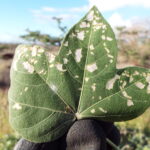 Understanding Leaf Loss in Succulents: Causes and Solutions
Understanding Leaf Loss in Succulents: Causes and SolutionsWhen a dog ingests a toxic succulent plant, they may experience various symptoms depending on the plant and the amount ingested. These symptoms can range from mild to severe and may include vomiting, diarrhea, drooling, lethargy, loss of appetite, tremors, and even seizures. If you suspect that your dog has ingested a toxic succulent, it’s important to seek prompt veterinary attention.
Treatment and prevention
If you believe your dog has ingested a toxic succulent plant, it’s essential to contact your veterinarian immediately. They will be able to provide guidance on the next steps to take based on the specific situation. In some cases, inducing vomiting may be necessary, while other situations may require supportive care and monitoring.
Prevention is always better than cure, so it’s important to take precautions to ensure your dog's safety. Keep toxic succulent plants out of your dog’s reach, especially if they have a habit of chewing on plants. If you’re unsure about the toxicity of a particular succulent, consult with a veterinarian or do thorough research before introducing it to your home.
Conclusion
While succulent plants can be a beautiful addition to your home decor, it’s crucial to be aware of the potential risks they pose to your furry friend. By knowing which succulent plants are toxic, recognizing the symptoms of ingestion, and seeking prompt veterinary attention, you can help protect your dog from potential harm. Remember, prevention and awareness are key to keeping your dog safe and healthy.
Frequently Asked Questions
1. Can eating a succulent plant harm my dog?
Yes, some succulent plants can be toxic to dogs and cause gastrointestinal upset, vomiting, and diarrhea.
 Is My Succulent Infested with Pests? Signs of White Web Infection
Is My Succulent Infested with Pests? Signs of White Web Infection2. How do I know if a succulent plant is toxic to my dog?
You can check with your veterinarian or refer to a comprehensive list of toxic plants for dogs to determine if a specific succulent is harmful.
3. What should I do if my dog ingests a toxic succulent plant?
If you suspect your dog has eaten a toxic succulent, contact your veterinarian immediately for guidance. They may recommend inducing vomiting or other necessary treatments.
4. Are there any safe succulent plants for dogs to be around?
Yes, there are many non-toxic succulent plants that are safe for dogs, such as echeverias, haworthias, and sedums. It's always best to double-check with your veterinarian before introducing a new plant to your dog's environment.
If you want to read more articles similar to Can Eating a Succulent Plant Harm My Dog?, you can visit the Pests and Diseases category.

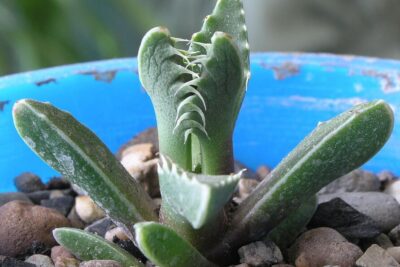

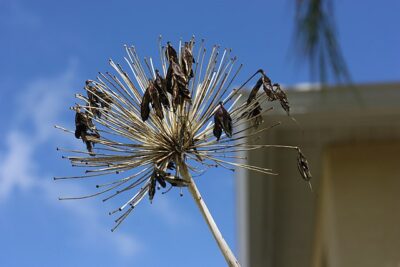

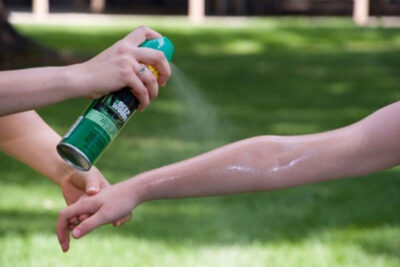
You Must Read